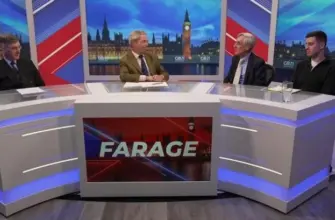President Trump asserted on Sunday his commitment to rectifying what he perceives as unfair trade practices and tariff barriers imposed upon the United States by foreign nations.
Despite a recent announcement from the administration granting exemptions for imported electronics like smartphones and laptops, President Trump clarified the situation via social media. He stated that these products were not exempt but rather being reassigned within existing tariff classifications—specifically, the 20% “Fentanyl Tariffs.” He criticized what he described as inaccurate reporting on this matter.
“There was no Tariff ‘exception’ announced on Friday,” Trump wrote. “These products are subject to the existing 20% Fentanyl Tariffs, and they are just moving to a different Tariff ‘bucket.’ The Fake News knows this, but refuses to report it.”
He emphasized the need for bolstering domestic manufacturing capabilities and asserted that the United States would no longer be held “hostage” by foreign nations, particularly China. He vowed an end to decades of perceived trade imbalances.
“What has been exposed is that we need to make products in the United States, and that we will not be held hostage by other Countries, especially hostile trading Nations like China, which will do everything within its power to disrespect the American People,” he continued. “We also cannot let them continue to abuse us on Trade, like they have for decades, THOSE DAYS ARE OVER!”
The administration is now conducting National Security Tariff Investigations focusing on semiconductors and the broader electronics supply chain.
Trump envisioned a future characterized by “more and better-paying jobs,” increased domestic production, and reciprocal treatment of other nations.
“The bottom line is that our Country will be bigger, better, and stronger than ever before,” he stated. “We will MAKE AMERICA GREAT AGAIN!”
Customs and Border Protection’s revised guidance, stemming from a presidential memorandum issued Friday, details the exemption of certain electronics from Trump’s executive orders imposing tariffs—up to 125% on China—designed to address trade imbalances.
The temporary easing of tariffs is expected to provide relief for consumers and benefit major technology companies such as Apple, Samsung, and Dell. Products now exempt include:
- Hard drives
- Computer processors
- Solar cells
- Semiconductor manufacturing equipment
- Flat-panel TV displays
- Memory chips
Commerce Secretary Howard Lutnick cautioned that these exemptions are not permanent, indicating further adjustments are anticipated within the next month or two. He clarified that while currently exempt from reciprocal tariffs, these products remain subject to existing semiconductor tariffs.
During a conversation with reporters aboard Air Force One on Saturday evening, Trump indicated he would provide additional details regarding potential exemptions on Monday. He highlighted the financial gains achieved through current trade practices.
“We’ve been making a lot of money,” he said. “It’s been the other way around. Other countries, in particular China, was making a lot of money.”
White House Press Secretary Karoline Leavitt affirmed that the administration remains committed to encouraging technology companies to relocate their manufacturing operations to the United States.
“The administration has secured U.S. investments from tech companies, including Apple, TSMC and Nvidia, that are ‘hustling to onshore their manufacturing in the United States as soon as possible.’”



